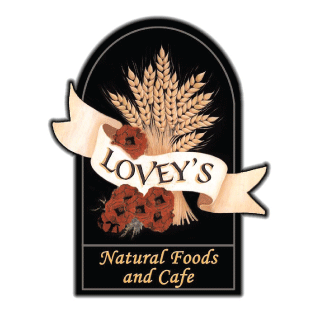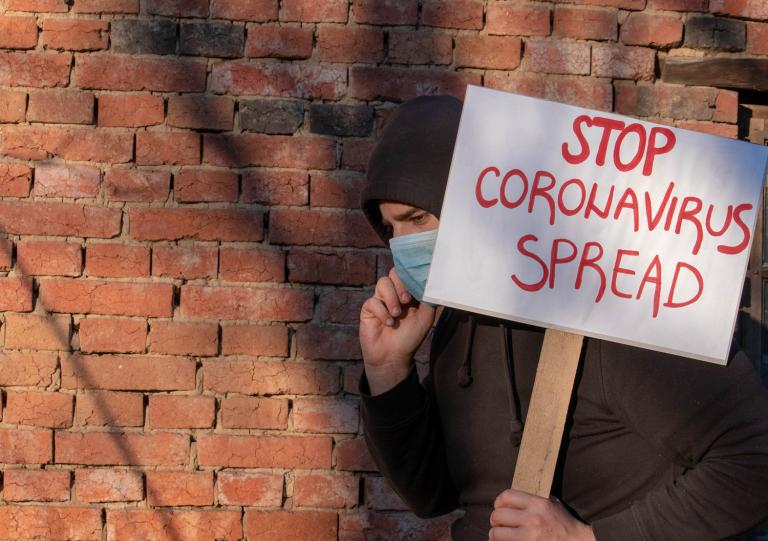With the fast, worldwide reach of the media, it seems like every year we hear about a new illness outbreak looming on the horizon. In 2001 it was anthrax, 2002 was West Nile virus, 2003 was SARS, and in the following years it’s been H1N1 influenza, Ebola, and Zika viruses, among others. And now in 2020, we have a new coronavirus emerging.
The World Health Organization has now declared the coronavirus outbreak centered in Wuhan, China a “public health emergency of international concern,” with cases diagnosed as far as Europe, Thailand, Japan, and the US. This currently rivals the SARS coronavirus outbreak as far as total numbers, but the relative good news is that the fatality rate is much lower at 2 percent right now. Unfortunately, the media coverage and medical system response is enough to create panic for anyone.
Boost Your Immune System to Exploit Virus Weakness
Fortunately, all viruses share the same fundamental weaknesses, and there’s so much we can do to safely, easily, and naturally exploit these weaknesses to boost our immune system and protect ourselves from getting sick. For instance, did you know the magnesium chloride that is commonly used even in hospital ICU departments to save lives can also help fight off a virus? It’s true, and magnesium chloride is readily available for home use as well, so you don’t have to get sick to have access to it. And you can easily make it into a gel to apply to your children’s skin, so you don’t have to worry about getting them to take a pill.
With a basic understanding of how common viruses spread, some simple common sense precautions, and nutrients to boost your immune system, you can help protect your family from this public health menace.
Use Common Sense to Prevent Viral Illness
The first thing you need to know about fighting off viruses is that the earlier you start, the better your interventions work. Don’t wait until you have a fever and cough, start at the first sign of a sniffle or that feeling that you might be coming down with something. Pay attention to local media and area schools with what they announce is going around, and boost your immune system ahead of time so you never have to miss a day of work.
When you have to go out in public during a viral illness outbreak (like flu season) to run errands or attend events, make sure you understand how the virus is spread and take appropriate measures. Most viral illnesses that cause outbreaks are airborne. This means they spread through tiny droplets that come from coughs and sneezes, and can travel all the way across a crowded room through the air, landing on solid surfaces or being breathed in.
Take Caution When in Public Spaces
Door knobs, shopping carts, keypads at the checkout, chair arms, and even the items you touch while shopping can all have contaminated droplets on them. While you are out, take special care to not touch your face and wash your hands regularly, or at least once you leave the store. If you are immune-compromised, wear a mask.
School children should wash hands regularly throughout the day, and athletes who play sports like basketball need to be aware the germs can travel on the ball and they need to use a towel (not their hands) to wipe sweat from their faces, and wash their hands after playing.
The Difference Between Viruses & Bacteria
Viruses aren’t like bacteria, so you can’t simply take an antibiotic to get over them. Bacteria stick to the outside of your cells, while viruses inject themselves inside your cells, using your own cells as a layer of protection. This makes it difficult to develop medications that stop viruses without injuring our own cells. This is why we look to natural alternatives that help boost our immune systems so they fight off foreign invaders more quickly, and also help to strengthen cell membranes so the viruses can’t get in to begin with.
10 Best Immune Support Nutrients
-
Elderberry Syrup
Elderberry Syrup has earned its reputation as a potent flu-fighter and works well to boost immunity for other viruses as well. Elderberry is an immune system modulator, increasing the production of cytokines to help the body regulate its response to infections and diseases. The best syrup is the one you make yourself by boiling fresh or organic dried berries and adding local honey to the strained liquid once it has cooled (to preserve the immune boosting enzymes found in the honey). If you choose store bought, make sure the syrup is organic with no artificial sweeteners. Aim for one tablespoon 3 to 6 times daily at the onset of symptoms.
-
Echinacea
Echinacea combined with elderberry is a dynamic duo. A Czech study of more than 400 people with early flu symptoms found it was more effective than a Tamiflu/placebo combination, with 90 percent of people experiencing symptom relief and shorter duration of the flu. This powerful combination also proved effective against avian influenza virus and other upper respiratory infections. Echinacea has an astringent effect on tissues, which decreases the ability of a virus to infect cells. It also increases the number of macrophages, the immune cells that kill bacteria and clean up dead viruses. Echinacea can be taken as often as every 4 hours in the first few days of infection as tincture, tea, or capsules.
-
Oil of Oregano
Oil of Oregano was studied during the SARS coronavirus outbreak and an in vitro study showed it stopped virus replication within 20 minutes of exposure. While these types of studies alone aren’t considered strong enough scientific evidence alone, oregano has long been known for its antiviral, antibacterial, and antifungal properties. It should be noted that oil of oregano is not the same as oregano essential oil. Oregano essential oil has been found to kill the healthy probiotic bacteria in your microbiome, while oil of oregano has not. My recommendation is for oil of oregano, 2 gelcaps twice daily.
-
Olive Leaf Extract
Olive Leaf Extract has been shown in studies to have antimicrobial and antioxidant properties. Not only is it antiviral, but also lowers blood pressure, balances blood sugars in diabetics, increases metabolism, and has anti-aging effects on the skin. Olive leaf extract also fights the dangerous E. coli and salmonella found in food poisoning. One teaspoon of tincture 2 to 3 times daily should be taken at the first sign of viral illness. Olive leaf extract is known to work well with oil of oregano.
-
Monolaurin
Monolaurin is a fat found in coconut oil and has strong protective effects for viruses similar to coronavirus. Many viruses, including the Wuhan coronavirus, are enveloped in a protective layer of fat, shielding it from the immune system. Monolaurin dissolves the lipids in this fatty envelope, stripping the virus of its protective layer, allowing it to be destroyed by the immune system. When seeking monolaurin’s immune-supportive properties, it isn’t enough to ingest coconut oil, you must take the more concentrated form. I recommend 1500 milligrams twice daily in capsule form.
-
Vitamin C
Vitamin C is a potent nutrient with many positive effects to help boost the immune system. It starts outside the cell by strengthening the collagen matrix, which helps limit the damage a virus can do to your tissues. Once inside the cell, vitamin C enters the virus and stimulates a reaction that kills the virus. Not many nutrients can help to strengthen your immunity and repair cells like this vitamin does. I recommend Time-C (a time-released formula) taken as 1 to 2 tablets three times daily to keep vitamin C levels steady all day.
-
Vitamin D
Vitamin D has several studies that back up its effectiveness against the flu and other viruses by decreasing duration and reducing the risk of being infected in the first place. Vitamin D also stimulates your innate immunity to viruses. I recommend doses up to 5000 IU to support your immune system during viral outbreaks.
-
Iodine
Iodine was shown in 1905 to be effective against tuberculosis, and was used almost a century ago in aerosol form to protect classrooms against influenza. According to Dr. David Brownstein, “There is no bacteria, virus, parasite or fungus that is known to be resistant to iodine.” It can be taken in liquid form as Lugol’s solution, or in pill form as Iodoral. Aim for up to 12.5 milligrams of intake per day at the onset of symptoms.
-
Magnesium
Magnesium is a powerful immune-boosting ally. As I touched on briefly, its use extends beyond the ICU and into your home. Magnesium is in high demand in your body when you are under any kind of stress, including the physical strain of illness. Magnesium chloride, which can be applied topically either as a bath salt or made into a gel, is especially helpful because our bodies are able to tolerate higher doses. The gel is made simply by adding small amounts of water to the salts until liquified. Apply a few grams every few hours when symptoms start to help decrease duration and severity. It is important to note that your diet should be free from processed sugar while ill, because it takes more than 50 molecules of magnesium to process only one molecule of sugar.
-
Selenium
Selenium deficiency in the body could allow an otherwise benign virus to mutate and cause serious damage. This is because there are selenium dependent proteins in your immune system that keep viruses under control. When you don’t have enough selenium to make adequate levels of these proteins, your body doesn’t have the support it needs and viruses could be allowed to run rampant. It only takes 100 to 200 micrograms of this powerful antioxidant mineral daily to keep levels optimal.

